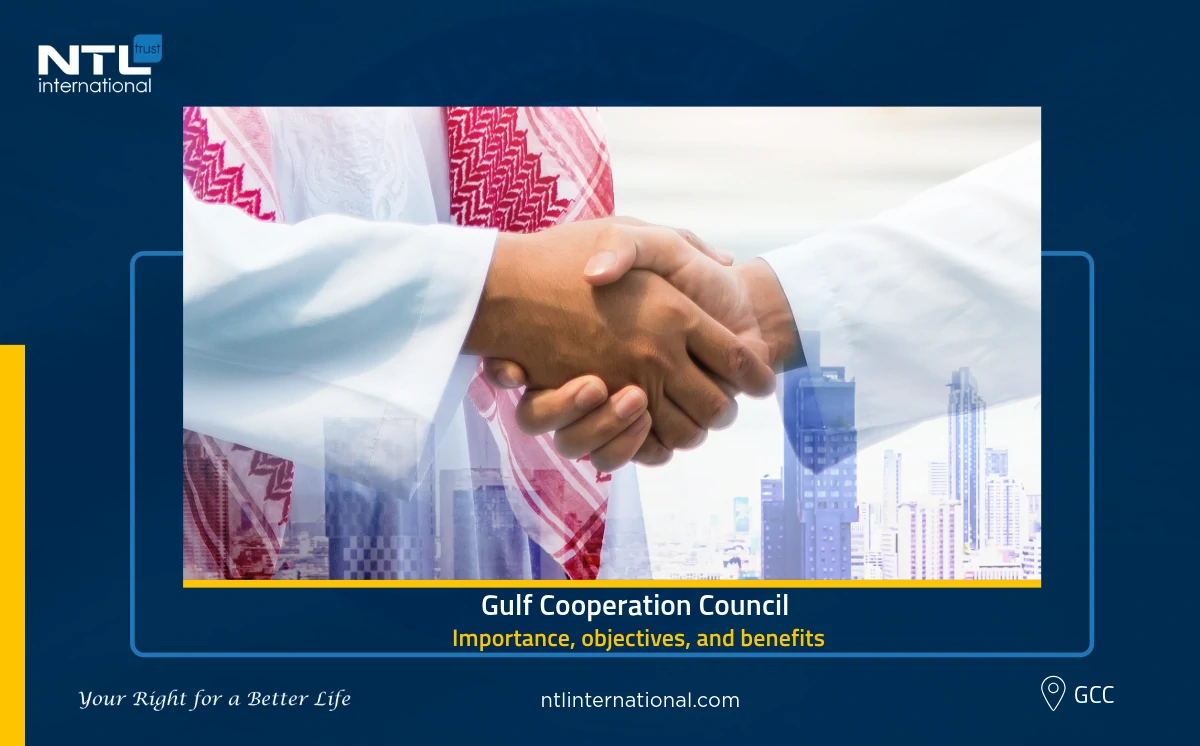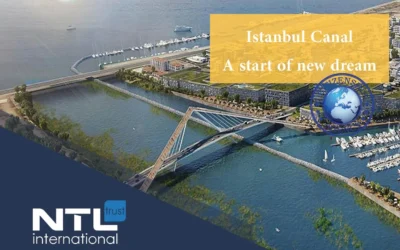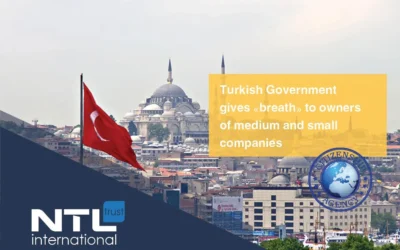
Investment opportunities are increasing as countries develop and their economies grow. In recent years, we have witnessed economic development and the provision of investment opportunities in many Gulf Cooperation Council (GCC) countries, starting with the UAE, which offers various types of support to attract investors, and extending to Saudi Arabia, which is striving to be at the forefront of this investment competition.
What is the Gulf Cooperation Council (GCC) and When Was It Established?
The GCC is a regional organization consisting of six Arab countries located in the Arabian Gulf region. It was established on May 25, 1981, to enhance cooperation and integration among its member states in various economic, political, security, and cultural fields. The member states of the GCC are Saudi Arabia, the United Arab Emirates, Kuwait, Qatar, Bahrain, and Oman.
Importance of the Gulf Cooperation Council:
The Gulf Cooperation Council holds significant importance both regionally and internationally. Economically, it represents a unified market comprising over 54 million people, opening up vast investment opportunities for foreign and local investors. Politically, the GCC seeks to enhance stability and security in the region, which contributes to attracting investments and stimulating economic growth. Socially, the council works to strengthen cultural and social ties among the peoples of the member states, thereby enhancing the unity and integration of the region.
Objectives of the Gulf Cooperation Council:
The GCC promotes cooperation and integration among its member states across all fields. Some of its key objectives include:
- Economic Integration: Creating a common market and unifying economic and financial policies.
- Security Cooperation: Strengthening collaboration to address common security challenges.
- Sustainable Development: Enhancing cooperation in areas such as environmental protection, renewable energy, education, and healthcare.
- Enhancing Foreign Relations: Strengthening external relations with countries and international organizations, contributing to the achievement of the member states’ interests on the global stage.
Benefits of the Gulf Cooperation Council:
The GCC offers numerous benefits to investors and those who obtain citizenship or investment residency. Among the most notable benefits are:
- Unified Market: Access to a common market with over 54 million people opens up vast trade and investment opportunities.
- Stable Investment Environment: Political and security stability in the region, making it an attractive destination for foreign investments.
- Unified Policies: Harmonized economic and trade policies among member states, facilitating trade and investment activities.
- Developed Infrastructure: The member states boast advanced infrastructure in transportation, communications, and energy, supporting commercial and investment activities.
Member States of the Gulf Cooperation Council:
The Gulf Cooperation Council is composed of six member states:
- Saudi Arabia
- United Arab Emirates
- Kuwait
- Qatar
- Bahrain
- Oman
FAQs:
Is there a special visa for the Gulf Cooperation Council?
Yes, it was announced during the 2023 Gulf Summit that a visa similar to the Schengen visa in the European Union would be introduced.
When will the GCC visa be implemented?
There is no official date yet to implement this visa, but it is expected to come into effect at the beginning of 2025.
The GCC is a significant entity that offers numerous investment and business opportunities for investors and those who obtain citizenship or investment residency. Thanks to the political and security stability and economic integration among the member states, investors can benefit from a favorable investment environment and ample growth opportunities. The GCC visa is expected to provide many facilitation measures, which we will update you on as soon as they become available through the NTL website.
Germans, their customs and traditions
Each people have their own customs and culture that distinguish it. So if you are a fan of Germany and are thinking of obtaining residency there; we will guide you on the most important customs and traditions of the Germans.
Tourism in Germany and tourist attractions
There are various ideas for enjoying your time in Germany; from hiking in the Alps or low mountain ranges to beach holidays in Rügen, Usedom or Sylt, cultural trips to Berlin, Hamburg or Munich, or along the Rhine. You can take excursions.
Istanbul Canal, a start of new dream
“Istanbul Canal is a project that will increase the strategic importance of Istanbul”
The Turkish Government Gives “Breath Credit” to Medium and Small Companies
In dealing with the Covid-19 outbreak, the Turkish government continues to support its people to overcome this period. Accordingly, President Recep Tayyip Erdogan announced a new economic support ” NEFES KREDİSİ: Breath credit” to assist various sectors.
Now it possible to apply for Turkish Citizenship through e-Devlet
To obtain Turkish citizenship the e-government portal /e-Devlet/, in cooperation with the Directorate of Souls and Citizenship, launched a very important and awaited service





